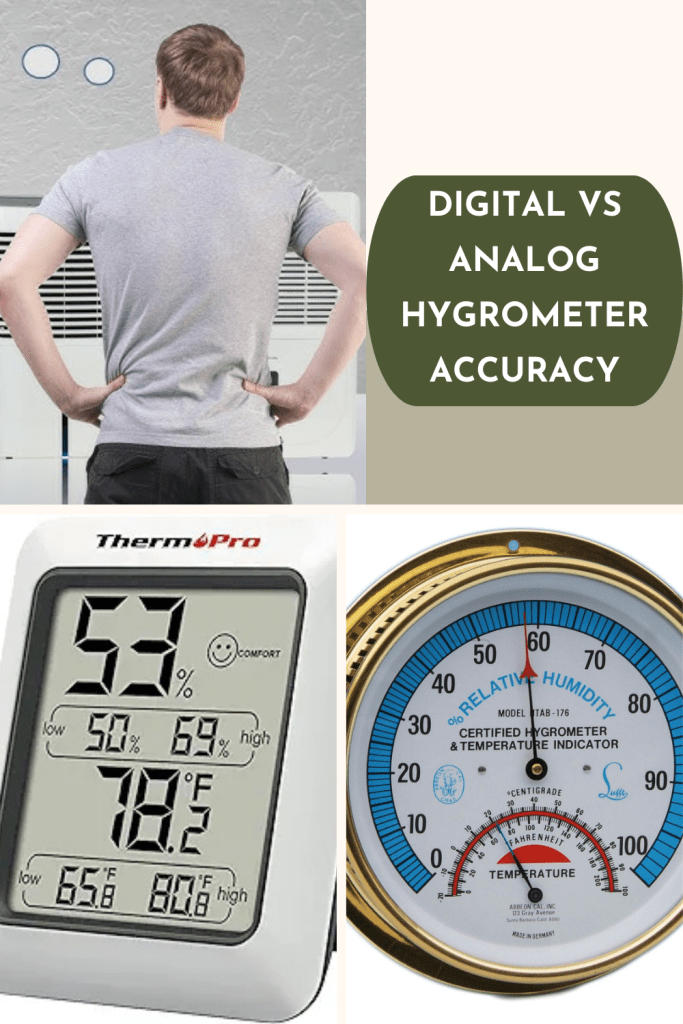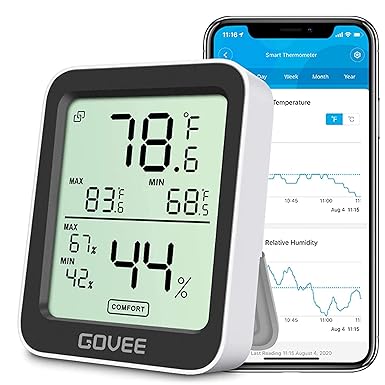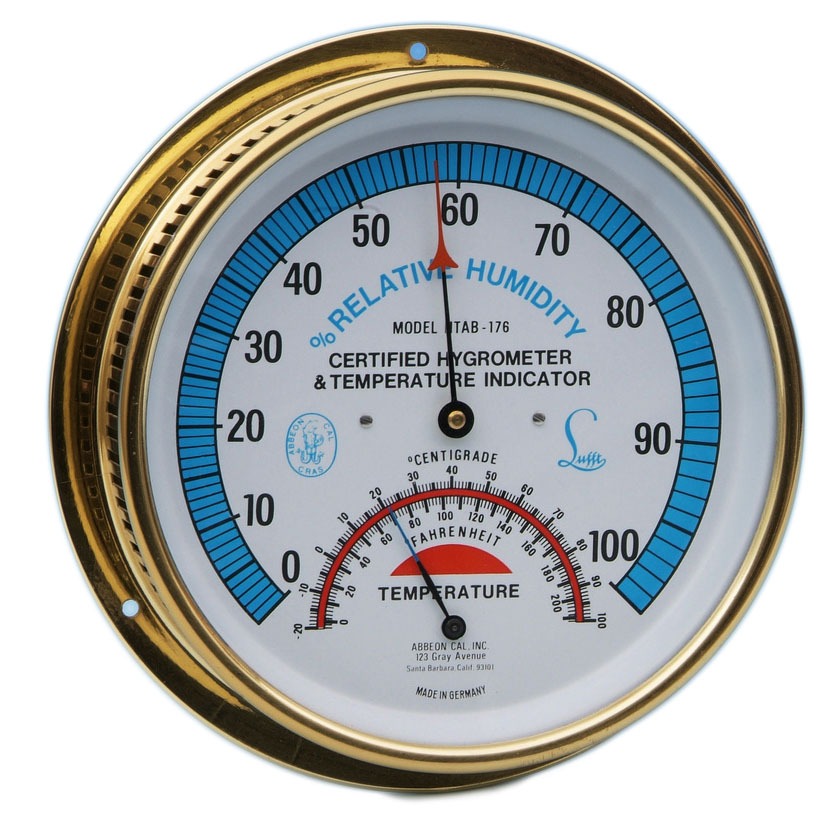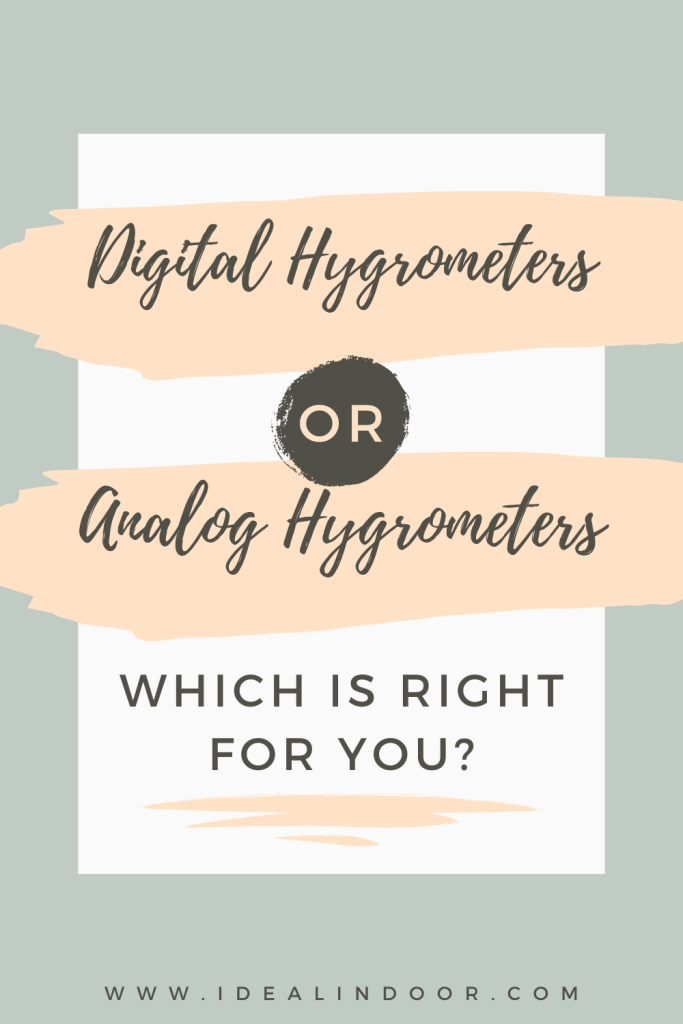Ever wondered if your hygrometer is giving you the real picture? Whether you’re trying to keep your cigars fresh, maintain the right humidity in a reptile enclosure, or simply keep your home comfortable, getting accurate humidity readings is essential. But which hygrometer is more reliable—digital or analog? In my journey to understand these tools better, I discovered there’s more to it than I initially thought.
In this guide, we’ll dive into the world of hygrometers. I’ll cover how each type works, explore which is more accurate, and answer some of the most common questions.

What is a Hygrometer?
Before we can weigh the pros and cons, let’s talk about what a hygrometer actually does. At its core, a hygrometer is a device designed to measure humidity—the amount of water vapor in the air. This measurement is given as a percentage, known as relative humidity (RH). In the right conditions, humidity can be beneficial, but too much or too little can cause issues for people, plants, and even inanimate objects.
Humidity affects more than you might think. A hygrometer is helpful for anyone looking to create an environment that’s comfortable and safe, whether you’re controlling the air in a greenhouse or maintaining the proper atmosphere in a wine cellar.
Why Is Accuracy Important in a Hygrometer?
Accuracy isn’t just a luxury; it’s a necessity.” Imagine setting up a humidifier in a room based on the readings from an inaccurate hygrometer—you could end up with a space that’s too damp, encouraging mold growth, or too dry, which can lead to health issues. When readings are off, it’s easy to overlook humidity problems, impacting everything from health to comfort.
Accurate hygrometers help ensure your space is optimized, so you get the benefits without the risks. This is especially true for specific applications, like preserving delicate items or preventing respiratory issues.

How Do Digital Hygrometers Work?
Digital hygrometers rely on electronic sensors, usually in the form of capacitance sensors or resistive humidity sensors, to measure relative humidity. These sensors detect changes in the environment’s moisture content and convert them into digital readings that are displayed on the screen.
One great aspect of digital hygrometers is that they often come with additional features, like temperature readings, data logging, and wireless connectivity, making it easier to monitor conditions over time.
Are Digital Hygrometers Accurate?
“Can I really trust the readings from a digital hygrometer?” I’ve asked myself the same question, and the answer is generally yes. Most high-quality digital hygrometers provide very accurate readings—often within ±2% relative humidity. However, the accuracy of a digital hygrometer can vary based on factors like the quality of the sensors and whether the device has been calibrated.
For the most part, digital hygrometers are accurate enough for regular home use, though it’s worth investing in a model from a reputable brand to avoid potential inaccuracies.
Pros and Cons of Digital Hygrometers
Like any technology, digital hygrometers come with advantages and some downsides. Here’s a quick breakdown:
Pros:
Digital hygrometers are highly accurate, quick to read, and usually offer extra features like temperature monitoring. Some models even have Bluetooth or Wi-Fi connectivity, allowing you to track humidity levels remotely.
Cons:
Digital hygrometers rely on batteries, which means they can lose power when you least expect it. They can also be more expensive than analog options and may suffer from interference in high humidity or fluctuating temperature conditions.
How Do Analog Hygrometers Work?
Analog hygrometers take a different approach. These devices often use materials, like human or synthetic hair, that expand or contract with changes in humidity. As the hair lengthens or shortens, it moves a needle on a dial to indicate the relative humidity. The design is simple but effective, making analog hygrometers a classic choice for humidity monitoring.
Accuracy of Analog Hygrometers
Are analog hygrometers accurate? Generally, yes, but their accuracy can be less consistent than digital models. Analog hygrometers are sensitive to temperature and humidity fluctuations, which can impact readings over time. However, they’re quite reliable when calibrated correctly and maintained in a stable environment.
A high-quality analog hygrometer can still give accurate readings within a few percentage points, though they may require regular calibration to maintain accuracy.
Pros and Cons of Analog Hygrometers
Let’s take a closer look at the strengths and weaknesses of analog hygrometers:
Pros:
Analog hygrometers don’t rely on batteries, so they’re ready whenever you need them. They’re durable, straightforward, and usually cost-effective, making them ideal for those who prefer simplicity.
Cons:
Analog models can be more challenging to read accurately, especially if the needle position is vague. They may require frequent calibration to maintain accuracy, which can be a drawback for some users.

Digital vs Analog Hygrometers Accuracy
Which is More Accurate: Digital or Analog?
When it comes to accuracy, digital hygrometers generally have the edge. This is due to their precise electronic sensors, which tend to be more reliable over a wider range of temperatures and humidity levels. Analog hygrometers can be accurate too, especially in stable environments, but they’re more susceptible to drift, requiring periodic recalibration to maintain their accuracy.
What is the Most Accurate Type of Hygrometer?
“For those who need absolute precision, there’s one type of hygrometer that might be the gold standard.” Gravimetric hygrometers, often used in scientific laboratories, are considered the most accurate as they measure humidity through precise weight measurements of water vapor. These aren’t practical for home use but can be worth knowing about if you’re aiming for industrial-level accuracy.
In everyday settings, high-end digital hygrometers tend to be the most reliable choice for consistently accurate readings.

Common Questions about Hygrometer Accuracy
Are Digital Hygrometers Accurate for Home Use?
Most digital hygrometers on the market today are indeed accurate enough for home use, especially for purposes like monitoring indoor air quality, keeping plants healthy, or maintaining optimal humidity for sensitive items. If you’re looking to keep your humidity levels within a certain range, a digital hygrometer is generally more than sufficient.
What is the Most Accurate Way to Measure Humidity?
“Sometimes, the simplest approach is the most reliable.” For ultimate precision, a psychrometer—a device that measures humidity based on the cooling effect of water evaporation—is among the most accurate methods available. However, it’s not as practical as digital hygrometers for everyday use. For most people, a well-calibrated digital or analog hygrometer is accurate enough.
How Often Should You Calibrate Your Hygrometer for Accuracy?
Calibration ensures that your hygrometer remains accurate over time. For digital hygrometers, calibration once every six months to a year is typically sufficient. Analog hygrometers, however, may need calibration more frequently—about once a month or so. Many devices come with a built-in calibration feature, making it easier to keep your readings reliable.
VI. Choosing the Right Hygrometer for Your Needs
1. Factors to Consider When Choosing Between Digital and Analog Hygrometers
Still on the fence? Here’s a quick breakdown of the key factors to consider:
- Ease of Use: Digital models are generally easier to read and interpret.
- Battery Requirements: Analog models don’t require batteries, which may be a plus if you’re aiming for low maintenance.
- Environmental Stability: If you need a device for a greenhouse or humid room, a high-quality analog model might be suitable. For variable environments, digital is often more reliable.
- Intended Use: From keeping cigars fresh to monitoring a wine cellar, consider the purpose you have in mind when deciding.
2. My Experience: Choosing Digital or Analog
In my own experience, I ultimately leaned toward digital. With the convenience of precise readings and extra features like temperature tracking, digital hygrometers have made it easy to monitor conditions without constant recalibration. But I understand the appeal of analog simplicity, especially for anyone who values durability and reliability without the fuss.
VII. Conclusion
When it comes to digital vs analog hygrometers, there’s no one-size-fits-all answer. Digital models offer precision and ease of use, making them ideal for many home applications, while analog hygrometers bring durability and simplicity.
In the end, choose a hygrometer that fits your specific needs and environment. Both types have their strengths, and with a little calibration and maintenance, either one can be a reliable tool in keeping your space comfortable and controlled.